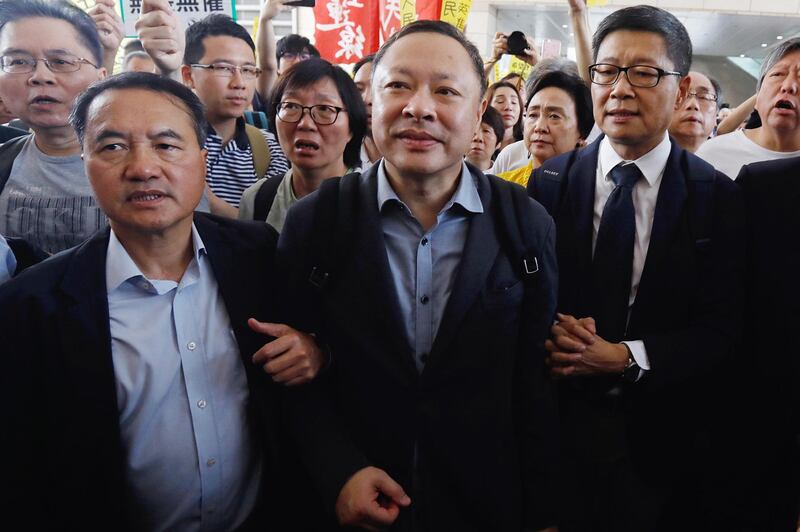A Hong Kong court has found nine democracy activists guilty of public nuisance charges for their roles in the 2014 civil disobedience demonstrations that became known as the Umbrella Movement.
Scores of supporters applauded the defendants, who included a law professor, two lawmakers and former student activists, after the judge delivered his landmark verdict on Tuesday following a trial that critics said highlighted diminishing freedoms in the city.
Three of the defendants accused of playing a leading role in the 79-day street occupations – Benny Tai, 54; Chan Kin-man, 60; and retired pastor Chu Yiu-ming, 75 – were found guilty of conspiracy to commit public nuisance. Both Tai and Chan were also found guilty of incitement to commit public nuisance.
The three men had pleaded not guilty to the charges, which each carry a maximum sentence of seven years in jail.
Tai told Reuters they would continue the struggle for full democracy.
"The reason that we committed civil disobedience is because we want justice for Hong Kong people," he said.
In a summary of his judgement, Justice Johnny Chan said that while the concept of civil disobedience is recognised in Hong Kong, it was not a defence to a criminal charge.
Since Hong Kong transferred from British to Chinese rule in 1997, critics say Beijing has reneged on its commitment to maintain the city's high degree of autonomy and freedoms under a "one country, two systems" arrangement.
In the five years since the Umbrella Movement, democracy activists, diplomats and business leaders have expressed concerns over what they believe is Beijing's tightening grip on the city's freedoms.
Pro-democracy lawmakers have been removed, a pro-independence party was banned, and democracy advocates were barred from contesting local elections.
A senior Financial Times editor was also effectively expelled from the city after he hosted a talk with a pro-independence activist at the Hong Kong Foreign Correspondents' Club.
The other defendants – pro-democracy legislators Tanya Chan and Shiu Ka-chun, former student leaders Eason Chung and Tommy Cheung, activist Raphael Wong, and Democratic Party member Lee Wing-tat – were also found guilty of at least one public nuisance charge. The defendants have all still to be sentenced.






